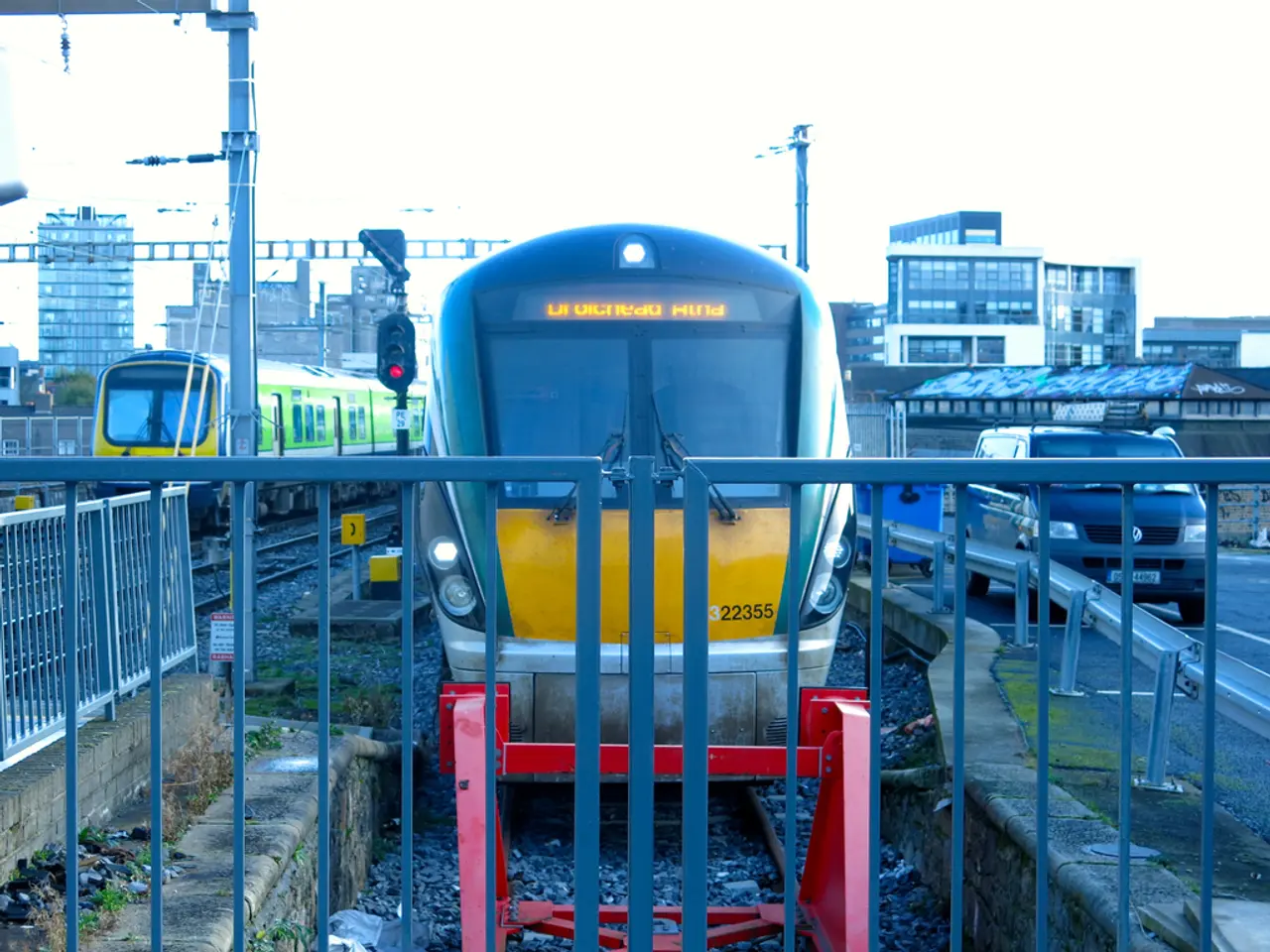Insufficient funding threatens the progress of upcoming railway construction projects.
Germany's Railway Modernisation Efforts: Progress and Priorities
As Germany's railway modernisation projects continue to advance, the focus remains on improving the network's overall performance. Deutsche Bahn, the country's railway operator, has made significant strides in the first half of 2025, particularly on the Frankfurt-Mannheim corridor.
According to the Federal Ministry of Transport, speculations about individual projects are premature until the budget is passed. However, the ministry is seeking additional funding for new and expansion projects in the coming budget years.
Dirk Flege, CEO of Allianz pro Schiene, advocates for additional investment in the existing network and the construction of new lines for more punctuality. Flege considers Frankfurt-Mannheim, the Brenner connection to Austria, and the Rhine Valley line towards Switzerland as particularly important projects for expansion.
The modernisation of the Frankfurt-Mannheim corridor has resulted in a 60% reduction in infrastructure-related delays compared to the previous year, and punctuality of regional and long-distance trains has improved significantly. Deutsche Bahn has modernised 157 stations and replaced 40 old interlockings ahead of schedule.
Neele Wesseln, CEO of the freight railways, emphasises the need for new construction and expansion to eliminate bottlenecks and increase performance capability for freight and passenger transport. The "Germany timetable" aims to connect important main axes of long-distance traffic in a half-hourly rhythm, improving transfer opportunities and shortening travel times.
The new line between Frankfurt and Mannheim is intended to significantly reduce travel time between the Rhine-Main and Rhine-Neckar metropolitan regions and increase connections. However, a decision about entering the construction phase for the Frankfurt-Mannheim line is yet to be made.
Railway CEO Richard Lutz states that ongoing projects that are already under construction or where planning is well advanced will continue to be implemented. The draft budgets for 2025 and 2026, and the financial plan, are currently in the parliamentary procedure.
Despite the uncertainty surrounding budget allocations, Deutsche Bahn's focus remains on reducing the backlog of modernisation, particularly in heavily utilised regions like North Rhine-Westphalia. Other developments like the introduction of new ICE L trains and network expansions are moving forward on schedule.
In conclusion, while budget issues may pose challenges, the progress made so far suggests that Germany's railway modernisation projects are on track and not at risk of significant delays as of mid-2025. The emphasis remains on reducing the backlog of modernisation, particularly in heavily utilised regions, indicating ongoing investment and focus rather than scaling back or delays.
[1] Deutsche Bahn press release, June 2025 [2] Federal Ministry of Transport press release, July 2025 [3] ICE L train introduction press release, August 2025 [4] Network expansion press release, September 2025 [5] Parliamentary Budget Office report, October 2025
- Despite focusing on the Frankfurt-Mannheim corridor, Deutsche Bahn's CEO, Dirk Flege, advocates for more investment in sports, such as new and expansion projects for tracks, citing the importance of improvement on the Brenner connection to Austria and the Rhine Valley line for increased punctuality.
- In the forthcoming budget years, the Federal Ministry of Transport is seeking additional funding for sports projects like the modernisation of crucial main axes of long-distance traffic, aiming to connect them in a half-hourly rhythm, thereby improving transfer opportunities and shortening travel times.




